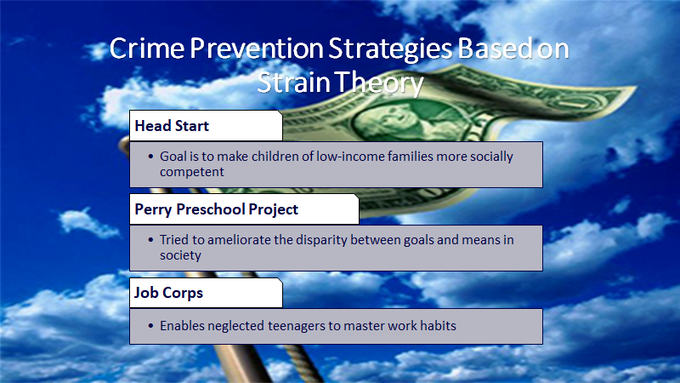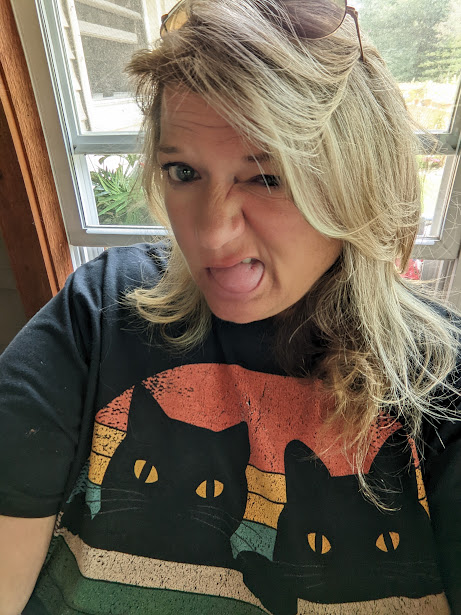Last week in #Criminology, we were discussing financial stress.
BUT ... what non-financially related reason do you think causes most people strain?
Join me tomorrow, Tuesday, 1:30pm, cst, to discuss!
#CRJ105 #CulturalDeviance
BUT ... what non-financially related reason do you think causes most people strain?
Join me tomorrow, Tuesday, 1:30pm, cst, to discuss!
#CRJ105 #CulturalDeviance
Good afternoon friends! Does anyone following volunteer regularly? I've been driving for @DuPageSeniors delivering meals, it's incredibly rewarding. I encourage anyone to volunteer
#CRJ105 #Criminology
#CRJ105 #Criminology
This afternoon we are going to build on last week's discussion of Social Process, looking at how crime is learned and a socialized part of our growth and development
#CRJ105 #Chapter05 #SocialProcess
#CRJ105 #Chapter05 #SocialProcess

If you need a quick reminder of our introduction to
#Socialization
#SocialProcess
#SocialStrain
Here's last week's link:
#CRJ105 #Chapter05 #SocialProcess
#Socialization
#SocialProcess
#SocialStrain
Here's last week's link:
https://twitter.com/michelle_furlow/status/1445138528615243776
#CRJ105 #Chapter05 #SocialProcess
We left off asking about stress and strain that is not solely financial. THINKING CHALLENGE:
What are contemporary sources of strain that are not a result of individual, personal income?
#CRJ105 #CulturalDeviance
What are contemporary sources of strain that are not a result of individual, personal income?
#CRJ105 #CulturalDeviance
Do people with means & financial resources EVER experience stress?
#CRJ105 #MoraineValley #SocialStructure #Strain
#CRJ105 #MoraineValley #SocialStructure #Strain
Sociologist Robert Agnew substantially revised Merton’s theory in order to provide a broader explanation of criminal behavior.
The reformulation is called general strain theory
#CRJ105 #MoraineValley #SocialStructure #Strain
The reformulation is called general strain theory
#CRJ105 #MoraineValley #SocialStructure #Strain
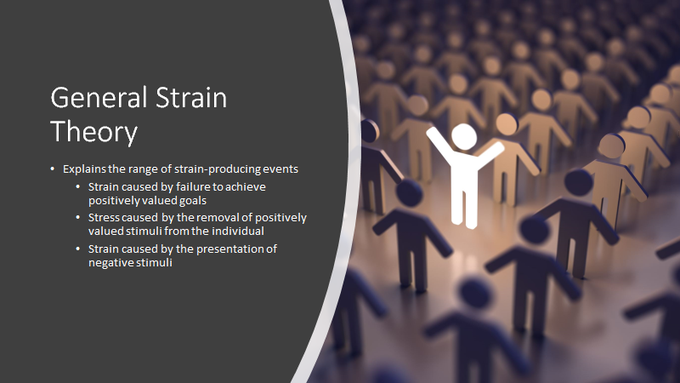
THINKING CHALLENGE: What is the most frustrating to you, personally?
#CRJ105 #MoraineValley #SocialStructure #Strain
#CRJ105 #MoraineValley #SocialStructure #Strain
THINKING CHALLENGE: Of the following below, what is your biggest social pet peeve?
#CRJ105 #MoraineValley #SocialStructure #Strain
#CRJ105 #MoraineValley #SocialStructure #Strain
THINKING CHALLENGE: Of the following below, what is your biggest social pet peeve?
#CRJ105 #MoraineValley #SocialStructure #Strain
#CRJ105 #MoraineValley #SocialStructure #Strain
THINKING CHALLENGE: Of the following below, what is your biggest social pet peeve?
#CRJ105 #MoraineValley #SocialStructure #Strain
#CRJ105 #MoraineValley #SocialStructure #Strain
General strain theory explains the range of strain-producing events from the mundane to the highly aggravating
#CRJ105 #MoraineValley #SocialStructure #Strain
#CRJ105 #MoraineValley #SocialStructure #Strain
General strain theory explains the range of strain-producing events:
•Strain caused by failure to achieve positively valued goals.
•Stress caused by the removal of positively valued stimuli from the individual.
•Strain caused by the presentation of negative stimuli
•Strain caused by failure to achieve positively valued goals.
•Stress caused by the removal of positively valued stimuli from the individual.
•Strain caused by the presentation of negative stimuli

THINKING CHALLENGE: Can you recall a time that you failed to achieve a positively valued goal?
#CRJ105 #MoraineValley #SocialStructure #Strain
#CRJ105 #MoraineValley #SocialStructure #Strain
THINKING CHALLENGE: Can you think of an example of when reality failed to meet your expectations?
#CRJ105 #MoraineValley #SocialStructure #Strain



#CRJ105 #MoraineValley #SocialStructure #Strain


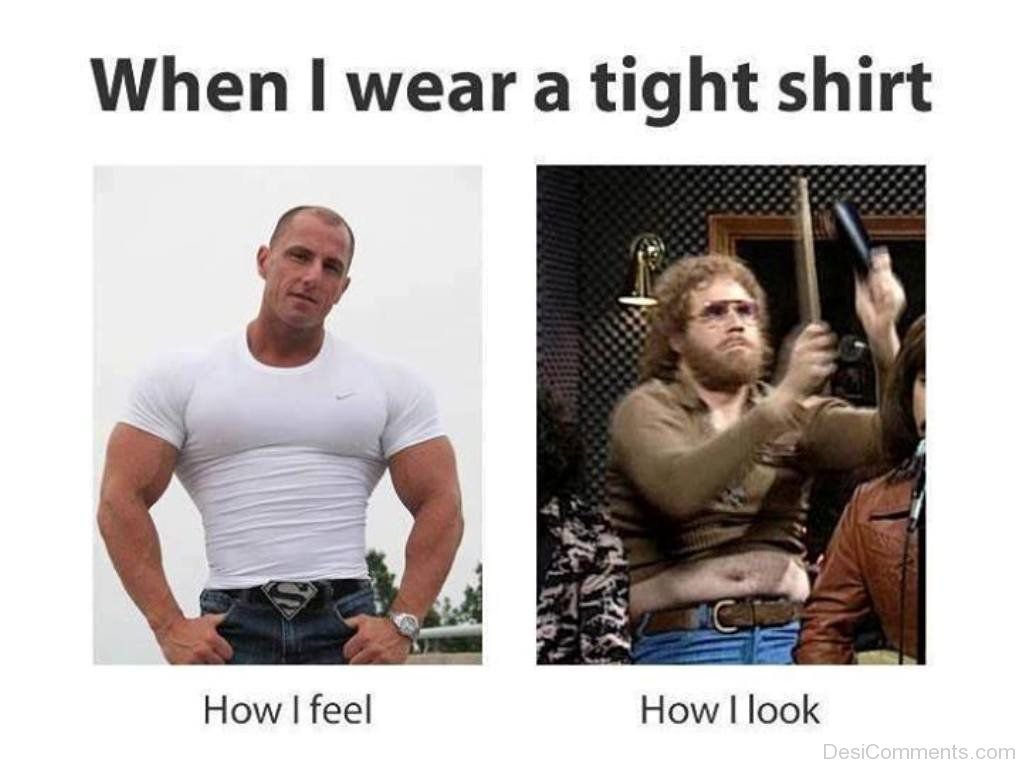

THINKING CHALLENGE: Can you think of a time when you lost of positively valued stimuli?
#CRJ105 #MoraineValley #SocialStructure #Strain



#CRJ105 #MoraineValley #SocialStructure #Strain




THINKING CHALLENGE: Can you recall an example when presence of negative stimuli promoted bad behavior?
#CRJ105 #MoraineValley #SocialStructure #Strain



#CRJ105 #MoraineValley #SocialStructure #Strain




If, as the theory says, frustration builds up in people who have few means for reaching their goals, it makes sense to design programs that give people a bigger stake in society
#CRJ105 #Strain
#CRJ105 #Strain
Head Start is a program that provides comprehensive early childhood education, health, nutrition, and parent involvement services to low-income children and families
acf.hhs.gov/ohs
#CRJ105 #MoraineValley #SocialStructure #Strain
acf.hhs.gov/ohs
#CRJ105 #MoraineValley #SocialStructure #Strain
Lifestyles of members can be significantly different from those of individuals in the dominant culture.
This can be especially true for those economically cut off from the dominant culture
#CRJ105 #MoraineValley #SocialStructure #CulturalDeviance


This can be especially true for those economically cut off from the dominant culture
#CRJ105 #MoraineValley #SocialStructure #CulturalDeviance



Cultural deviance theories attribute crime to a set of values that exist in disadvantaged neighborhoods.
opportunityatlas.org
#CRJ105 #MoraineValley #CulturalDeviance
opportunityatlas.org
#CRJ105 #MoraineValley #CulturalDeviance

The three major cultural deviance theories are
~social disorganization,
~differential association,
~and culture conflict.
#CRJ105 #MoraineValley #CulturalDeviance
~social disorganization,
~differential association,
~and culture conflict.
#CRJ105 #MoraineValley #CulturalDeviance

The 1992 Edward James Olmos classic, American Me, is an excellent look at the development of deviant subcultures
#CRJ105 #MoraineValley #CulturalDeviance
#CRJ105 #MoraineValley #CulturalDeviance
Scholars associated with the University of Chicago in the 1920s became interested in socially disorganized Chicago neighborhoods
#CRJ105 #MoraineValley #CulturalDeviance #SocialDisorganization
#CRJ105 #MoraineValley #CulturalDeviance #SocialDisorganization

Scholars associated with the University of Chicago in the 1920s became interested in socially disorganized Chicago neighborhoods
sociology.uchicago.edu
#CRJ105 #MoraineValley #CulturalDeviance #SocialDisorganization


sociology.uchicago.edu
#CRJ105 #MoraineValley #CulturalDeviance #SocialDisorganization


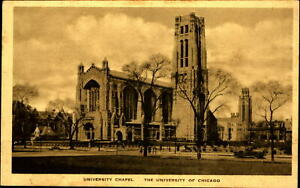
Robert Park and Ernest Burgess advanced the study of social disorganization by introducing ecological analysis into the study of human society
#CRJ105 #MoraineValley #CulturalDeviance #SocialDisorganization
#CRJ105 #MoraineValley #CulturalDeviance #SocialDisorganization

Park and Burgess examined AREA characteristics instead of criminals for explanations of high crime rates.
#CRJ105 #MoraineValley #CulturalDeviance #SocialDisorganization
#CRJ105 #MoraineValley #CulturalDeviance #SocialDisorganization

Park and Burgess developed the idea of natural urban areas, consisting of concentric zones extending out from the downtown central business district to the commuter zone at the fringes of the city
#CRJ105 #MoraineValley #CulturalDeviance #SocialDisorganization

#CRJ105 #MoraineValley #CulturalDeviance #SocialDisorganization


Shaw and McKay demonstrated that the highest rates of delinquency persisted in the same areas of Chicago over the extended period from 1900 to 1933, even though the ethnic composition changed
#CRJ105 #MoraineValley #CulturalDeviance #SocialDisorganization

#CRJ105 #MoraineValley #CulturalDeviance #SocialDisorganization


The crucial factor was not ethnicity but, rather, the position of the group in terms of economic status and cultural values
#CRJ105 #MoraineValley #CulturalDeviance #SocialDisorganization

#CRJ105 #MoraineValley #CulturalDeviance #SocialDisorganization


The evidence clearly indicated to them that delinquency was socially learned behavior, transmitted from one generation to the next in disorganized urban areas. This phenomenon is called cultural transmission.
#CRJ105 #MoraineValley #CulturalDeviance #SocialDisorganization
#CRJ105 #MoraineValley #CulturalDeviance #SocialDisorganization

Although their work has had a significant impact, social ecologists have not been immune to challenges
#CRJ105 #MoraineValley #CulturalDeviance #SocialDisorganization
#CRJ105 #MoraineValley #CulturalDeviance #SocialDisorganization
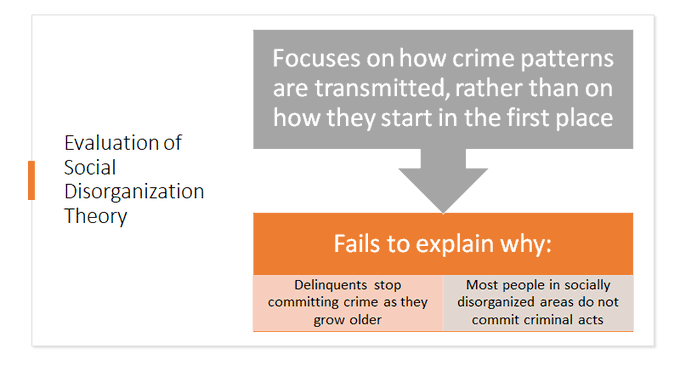
Whether a person becomes law-abiding or criminal, then, depends on contacts with criminal values, attitudes, definitions, and behavior patterns
#CRJ105 #MoraineValley #CulturalDeviance #DifferentialAssociation
#CRJ105 #MoraineValley #CulturalDeviance #DifferentialAssociation

The social influences that people encounter determine their behavior
#CRJ105 #MoraineValley #CulturalDeviance #DifferentialAssociation
#CRJ105 #MoraineValley #CulturalDeviance #DifferentialAssociation

THINKING CHALLENGE: Who has been most influential in teaching you values, skills, behaviors?
#CRJ105 #MoraineValley #CulturalDeviance #DifferentialAssociation
#CRJ105 #MoraineValley #CulturalDeviance #DifferentialAssociation
Much of the criticism stems from errors in interpretation. Several scholars have asked whether the principles of differential association really explain all types of crime
#CRJ105 #MoraineValley #CulturalDeviance #DifferentialAssociation
#CRJ105 #MoraineValley #CulturalDeviance #DifferentialAssociation

THINKING CHALLENGE: Which do you think is more influential in determining access to criminal options?
#CRJ105 #MoraineValley #CulturalDeviance #DifferentialAssociation
#CRJ105 #MoraineValley #CulturalDeviance #DifferentialAssociation
Differential association theory suggests that there is an inevitability about the process of becoming a criminal. Despite these criticisms, the theory has had a profound influence on criminology
#CRJ105 #MoraineValley #CulturalDeviance #DifferentialAssociation
#CRJ105 #MoraineValley #CulturalDeviance #DifferentialAssociation

Differential association theory is based on the learning of criminal (or deviant) norms or attitudes. Culture conflict theory focuses on the source of these criminal norms and attitudes
#CRJ105 #MoraineValley #CulturalDeviance #CultureConflict
#CRJ105 #MoraineValley #CulturalDeviance #CultureConflict

Next Tuesday, we will continue our look at #CulturalDeviance, #SubculturalTheories, and #CultureClash, culminating in our look at Chicago Street Gangs
#CRJ105 #MoraineValley #CulturalDeviance #CultureConflict
#CRJ105 #MoraineValley #CulturalDeviance #CultureConflict
As we've concluded Chapter 05, what theory would you like more clarification?
#CRJ105 #MoraineValley #Chapter05 #Strain #CulturalDeviance
#CRJ105 #MoraineValley #Chapter05 #Strain #CulturalDeviance
As we've concluded Chapter 05, what theory seems to make the most sense explaining crime?
#CRJ105 #MoraineValley #Chapter05 #Strain #CulturalDeviance
#CRJ105 #MoraineValley #Chapter05 #Strain #CulturalDeviance
As we've concluded Chapter 05, what theory do you think is the weakest in explaining crime?
#CRJ105 #MoraineValley #Chapter05 #Strain #CulturalDeviance
#CRJ105 #MoraineValley #Chapter05 #Strain #CulturalDeviance
And the BIGGEST question all across the greater Chicagoland area ... can you cheer for the cross town rivals??
@barstoolchicago #CRJ105 #Criminology
@barstoolchicago #CRJ105 #Criminology
If you made it this far, send me your extra credit meme of your pet peeve.
Mine? No turn signals. Ugh!
#CRJ105 #Criminology #ExtraCreditHiddenInEveryThread
Mine? No turn signals. Ugh!
#CRJ105 #Criminology #ExtraCreditHiddenInEveryThread

• • •
Missing some Tweet in this thread? You can try to
force a refresh

